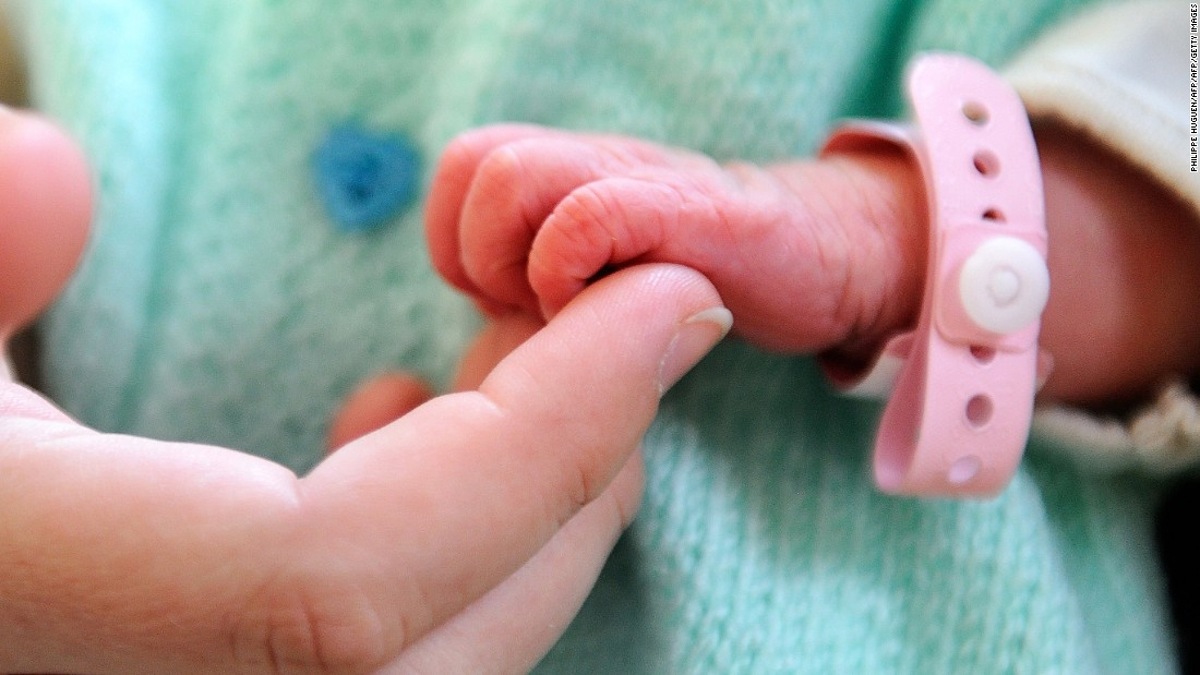How to control anxiety and fear after childbirth
(CNN Spanish) --
Mood swings, sadness, crying, irritability, insomnia, loss of appetite, anxiety or guilt are part of the cluster of symptoms that some women experience weeks after giving birth, but if these discomforts intensify and longer, we could be facing postpartum depression.
Postpartum depression affects 1 in 10 women during the first year after giving birth.
And it can happen to anyone, although there are risk factors such as a history of mental health problems, Chris Raines, a perinatal psychiatric nurse and chair of the board of Postpartum Support International, told CNN.
Postpartum depression cost the lives of a woman and her son
This disorder can be confused at first with the so-called "baby blues" that up to 80% of new mothers experience: temporary attacks of anxiety, crying or low mood can take women on an "emotional roller coaster", according to Raines, which is explained by the sudden drop in progesterone and estrogen levels after childbirth.
So what exactly are the symptoms of postpartum depression?
Here we tell you:
What is postpartum depression?
While the "baby blues," explains the Mayo Clinic, last from a few days to a week or two after the baby is born, the symptoms of postpartum depression can last up to a year and are more intense.
To such an extent that they can "eventually interfere with your ability to care for your baby and manage other daily tasks."
advertising
Many women even begin to yearn for the life they had before the birth of the baby and contemplate the possibility of giving their children up for adoption.
"[They say] this is not what I wanted. This is not what I expected. I thought this was what I wanted to do, but it's not," says Raines.
"It takes time to help them understand that it's not her talking, it's the anxiety and the depression and the chemical changes that are talking."
Postpartum depression medication counts $34,000 3:14
These chemical changes manifest in various symptoms that become indicators of possible postpartum depression, including:
A depressed mood or severe mood swings
excessive crying
Difficulty bonding with your baby
Withdrawal from family and friends
Loss of appetite or eating much more than usual
Inability to sleep (insomnia) or sleeping too much
Overwhelming fatigue or loss of energy.
Reduced interest and pleasure in activities you used to enjoy
Intense irritability and anger
Fear of not being a good mother
Despair
Feelings of worthlessness, shame, guilt, or inadequacy
Decreased ability to think clearly, concentrate, or make decisions
Concern
Severe anxiety and panic attacks
Thoughts of harming yourself or your baby
Recurring thoughts of death or suicide
Postpartum depression can be treated
If you experience any of the above symptoms, you will need a careful clinical evaluation to confirm the diagnosis and establish a treatment plan.
FDA approves first drug for postpartum depression
According to the Mayo Clinic, postpartum depression is often treated with psychotherapy, antidepressants, or both.
With proper treatment from a mental health professional, symptoms often improve.
With information from CNN's Ivana Kottasová
postpartum depression









